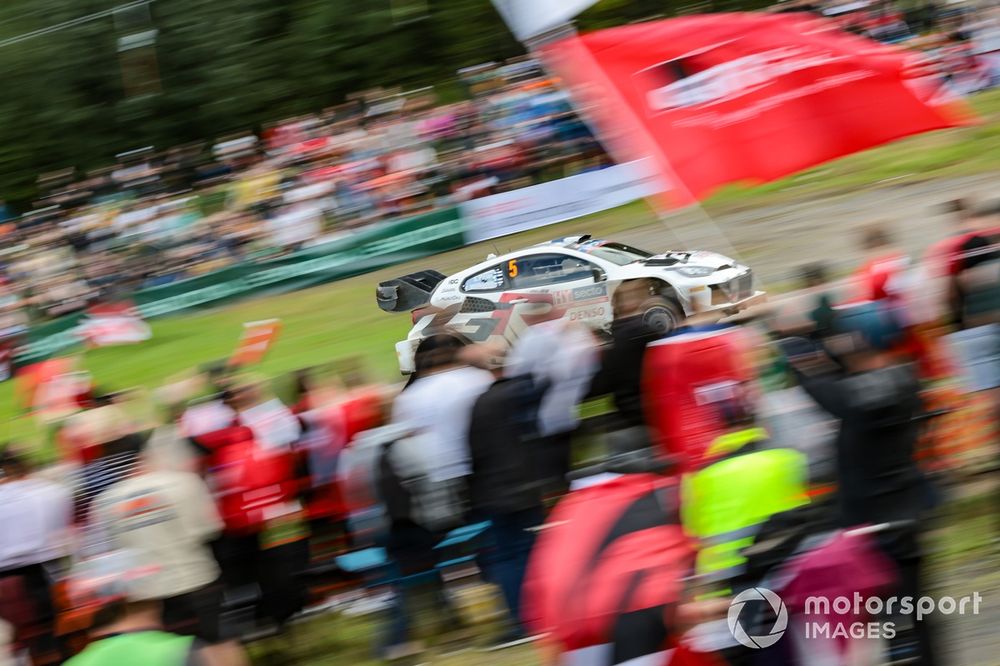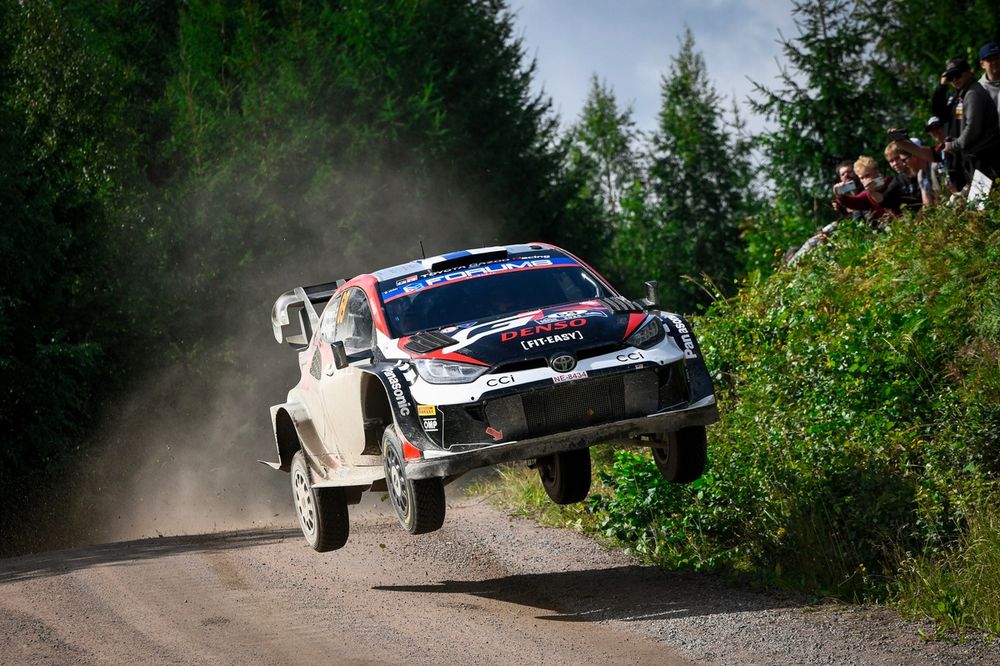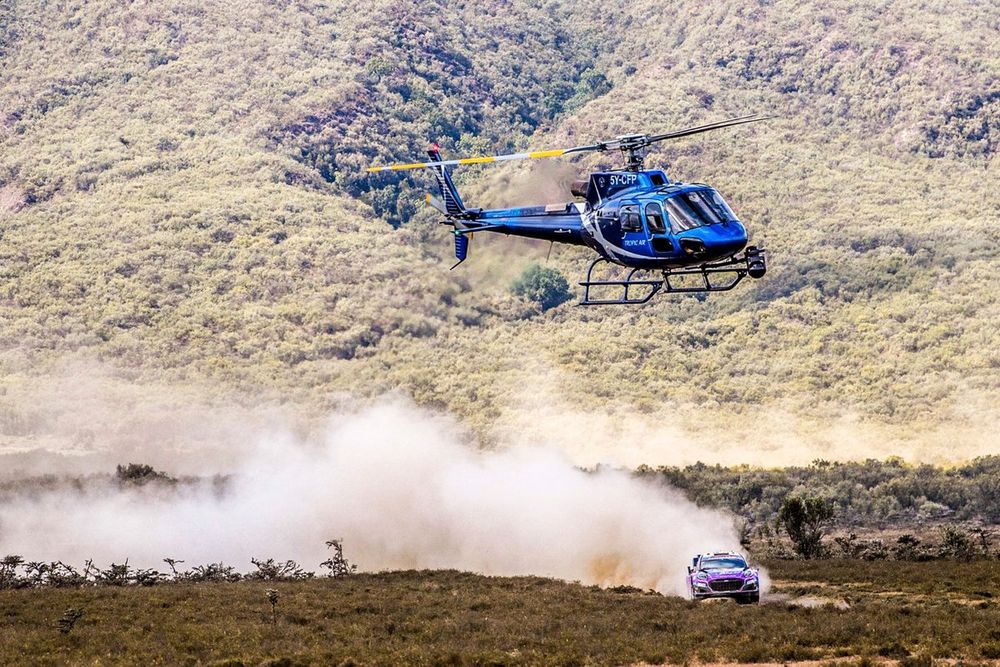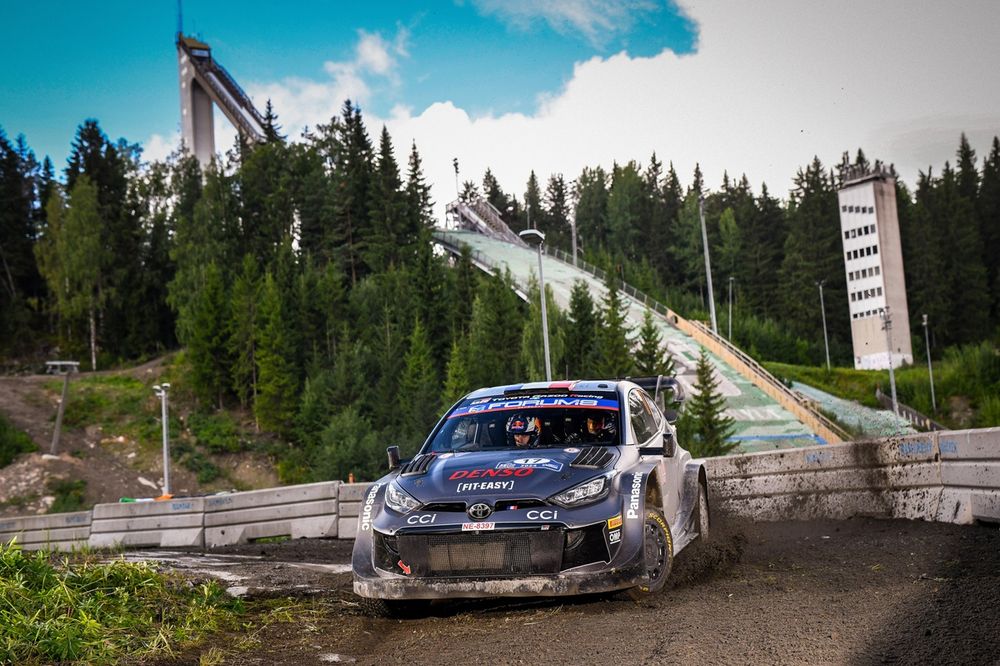Ever wondered why a World Rally Championship driver is faster than another on a stage? From next season some of those answers will come to light through the championship’s new Command Centre concept.
For rally fans of a certain generation, Virtual Spectator provided the first clear opportunity to understand and compare drivers on a rally stage. The technology created a virtual map of the stage with cars overlayed on top of each other, which was a feature of the broadcast in the early 2000s, providing an easy way to digest multiple drivers’ progress on a stage.
The WRC now plans to bring even more data to television screens from 2025 to help lift the lid on unfolding stories and offer more insight and information, to improve its storytelling of rallies and offer more data to the teams.
Earlier this year the WRC revealed plans for its concept dubbed the ‘Command Centre’. The WRC Promoter has been working with teams and manufacturers to extract more data out of the cars and increase live interaction between the crews and their teams through Formula 1-style team radio.
Testing of the system began this summer and has now reached a point where the system is being evaluated on WRC events, with Martins Sesks’ M-Sport Ford Puma running the system in Latvia while Toyota’s Sami Pajari tested the concept in Finland last weekend.

Sami Pajari, Enni Mälkönen, Toyota Gazoo Racing WRT Toyota GR Yaris Rally1
Photo by: McKlein / Motorsport Images
“Basically, what this [system] can do is the teams, us and the fans at home can feel more aware of what is going on with these cars,” said WRC event promoter Simon Larkin.
“We want to provide useful data but what we don’t want to get to a point where that data can be analysed by an additional performance engineer or a data analyst, because those who have money will spend money on it. We are going to do this in a rational way. We want it to be useful – keep cars in the rally but not add cost.
“We want try to have some data and we want to have some story.”
What is being developed and how will it work?
The WRC plans to launch its “Command Centre” from the opening round of the 2025 championship in Monte Carlo with the data and live team radio featuring as part of its international feed. The WRC Promoter has enlisted former Hyundai WRC team principal Andrea Adamo to oversee the concept’s development.
Motorsport has become a more data-driven sport over the years, with this now being translated to television broadcasts to help viewers better understand the action they are watching — whether it is seeing when a driver is accelerating or braking, or data that can determine when a driver will be in striking distance for an overtake in Formula 1, for example.
In the WRC, there currently is much less data available for the broadcast despite Rally1 cars having 104 sensors that already produce data monitored by the FIA.

Kalle Rovanperä, Jonne Halttunen, Toyota Gazoo Racing WRT Toyota GR Yaris Rally1
Photo by: Toyota Racing
The WRC’s Command Centre plans to capture, monitor and provide a portion of this data to the television broadcast and to teams. These sensors monitor inputs such as engine revs, gear selection, acceleration, brake pressure, tyre pressure, tyre temperatures, steering angle, the way hybrid power is being deployed and regenerated. It can also assist from a safety side by recording the g-force and direction of impacts.
One of the areas also being developed is the capability for the system to display what tyres a crew is using and how many kilometres the rubber has completed to help explain tyre strategies.
The WRC currently has a team radio system in action that is not currently offered to the broadcast, which it plans to further develop before next year’s launch.
It is this data combined with team radio communications from crews that the WRC wants to provide to teams and present in an easily digestible way to viewers to help explain what is going on during the stages.
How will the data reach the TV screen?
Broadcasting rallies is far more complicated that circuit racing given the distances and terrain the cars are travelling. Currently the live coverage provided by Rally.TV is beamed from onboard cameras, helicopter cameras and camera crews on the ground to an antenna on a private light aircraft flying above the stages, that ingests the footage.

WRC TV helicopter
Photo by: WRC.com
The ultimate plan is for this new raft of data from the cars to be beamed to the aircraft just like the rest of its vision. During the testing and development of the system, cars are being fitted with a Marelli smart antenna and a sim card, a system currently used in the World Endurance Championship and Formula E, that will transmit the data using LTE [a 4G mobile phone network], which is then interpreted and displayed live using computer software.
“This system can allow us to have a clear understanding of what is going on [with the cars],» explains Adamo. “If you have a car that is stopped somewhere you know why.
“It is good for the broadcast as we can understand immediately what is happening. Of course, it is an ongoing process, and we have to understand how to create the best window to follow not just one car as we would have 10 or 12 or as many as we have in the future.
“The target is to have a room where we will have different windows and screens for cars with clear pop-up alarms [that will appear on screen] that can immediately let us know if there is an issue with a car. Then we can inform the broadcaster that something is happening with a car and follow it closely and understand what is going on.”
How will the data benefit fans and teams?
Access to this live data has the potential to offer benefits to the fans and the teams. The information transmitted from the cars will provide much more insight if a crew has suffered an issue instead of waiting until television crews conduct stage end interviews with the drivers.
Tyre and hybrid deployment strategies will become much clearer to the viewers and, in theory, accurate comparisons between drivers through certain sections of stages to understand why a certain crew was faster or slower can be offered to viewers and explained by an analyst. It could provide the WRC an answer to Sky Sports F1’s Sky Pad analysis of incidents — a modern-day and more advanced version of Virtual Spectator.

Sébastien Ogier, Vincent Landais, Toyota Gazoo Racing WRT Toyota GR Yaris Rally1
Photo by: Toyota Racing
“What you can do with this data is nice stories between stages comparing the behaviour of the different cars along the stage,” says Adamo. “You can compare the different ways drivers are using the hybrid system, you can understand why one driver was faster in the first part of a stage than the others for example and the way they are managing tyre temperatures and tyre pressures and see the difference in performances.
“There are many things thanks to the data that you can develop and make stories and keep the fans informed and explain to them things that at the moment we are not able to understand because we are blind.”
It’s not just the fans that stand to benefit as teams having access to more live data could help keep cars in rallies if they are able to diagnose an issue from the data and communicate to the crews how to fix the problem.
“For the engineers it would be good because there could be some easy things that can be fixed by the driver,” Adamo added. “For example, when I was at Hyundai we have had some problems in the past that could have been solved easily if we knew what was going on. To lose a car for stupid things is a pity nowadays.”
The WRC plans to continue its development of the system before its 2025 rollout. It is anticipated that a car from Toyota, Hyundai and M-Sport-Ford each will run the system and the team radio at the Central European Rally in October.








